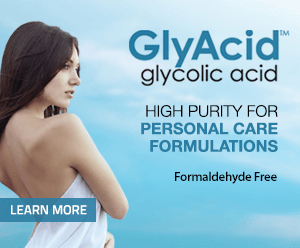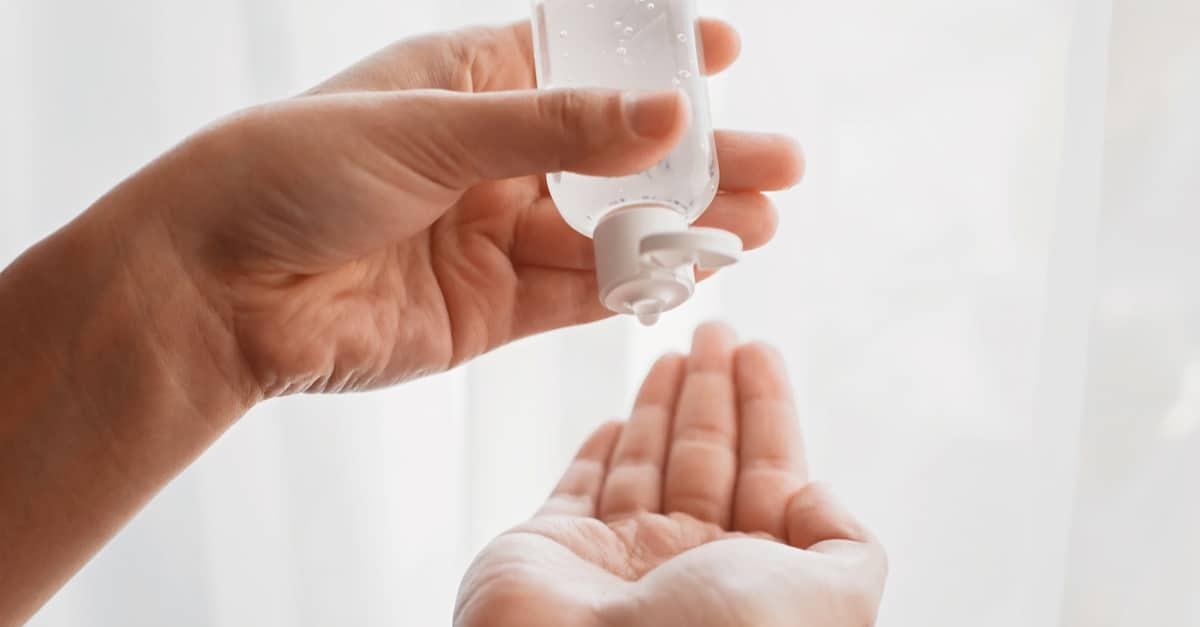Of all the issues that plague skincare consumers, clogged, enlarged pores always rank as a perennial concern.
“Enlarged pores — the small openings in skin that release skin’s oils and sweat — might seem like a teen or twenty-something issue, but they’re actually a sneaky sign of skin aging, too. Smaller pores can mean a smoother-looking complexion and a more even tone and makeup finish,’ explains Pia Velsco and Jessica Teich in Good Housekeeping.
While clogged pores might seem like a minor skincare issue, the darkened appearance and enlarged size of clogged pores bothers many consumers. However, there is a simple remedy to keeping pores cleaner and clearer, for longer. Regular use of glycolic acid, “the gold standard” in chemical exfoliation, is a fast, effective option to unclog pores.
What are pores?
Pores are the tiny ducts at the top of hair follicles that release sebum, to naturally moisturize the skin.
Pores allow the skin to release sweat and oil and help the skin to stay cool and healthy. However, when pores become clogged, the ducts often appear larger in size and dark in color.
What causes clogged pores?
Pores can become clogged for a variety of reasons, including genetics, pollution, reduced skin elasticity, and more. However, for the majority of consumers, clogged, enlarged pores can be linked to two common factors.
First, clogged pores are often the result of the overproduction of sebum. When the skin makes too much sebum, pores will stretch to accommodate the excess oil. This stretching causes the larger appearance of clogged pores.
The other factor behind clogged pores? A consistent lack of exfoliation. When dead skin cells mix with excess sebum or dirt on the face, the dead cells build up in the pores.
Excellent exfoliation
One of the best tactics to keep pores clean and clear is regularly exfoliate the skin.
However, the type of exfoliation performed is key. Physical exfoliation with scrubs or rough sponges like loofahs can be too rough for the skin on the face. Manual exfoliation can even lead to redness, irritation, and tears on the facial skin.
Instead, a gentler, even more effective solution to exfoliation is to use chemical exfoliants, most notably glycolic acid.
Regular exfoliation can help keep pores cleaner and clearer
Glycolic acid for clearer pores
Glycolic acid is considered one of the best skincare ingredients to unclog pores because of its small molecule size.
Glycolic acid is the smallest, lightest weight molecule in the powerful Alpha Hydroxy Acid family, so it can best penetrate the skin cell. Once applied to the skin, glycolic acid works quickly to melt the bonds holding dead skin cells together, and slough away dead skin cells.
In terms of clogged pores, this means glycolic acid helps to remove old skin cells and sebum from pores and allow oxygen to flow freely once again. This chemical exfoliation works to both shrink the appearance of pore size and reduce the darkened appearance of clogged pores.
Helpful for acne
Glycolic acid offers another key benefit to consumers seeking pore-fection. Glycolic acid is beneficial for treating acne, which can be caused by clogged pores.
“Acne prone, oily skin responds well to treatment with glycolic acid since it breaks the bonds between skin cells. This increases exfoliation and makes skin smoother and more even. It is also more humectant than most other active ingredients for acne, so it reduces dryness and irritation,” Dr. Corey L. Hartman told Town & Country.
Additionally, since glycolic acid helps retain moisture within the skin, it is typically a less irritating ingredient than other acne-blasting skincare stars.
“Glycolic acid also supports cell turnover, which means your skin is creating new, healthier skin cells at a more rapid pace.”
Heather Wilson, licensed esthetician, Brydie
Peerless pore-fection
While clogged pores can never be “solved,” regular chemical exfoliation with glycolic acid is an effective and affordable option to cleanse the skin and improve the appearance of pores.




